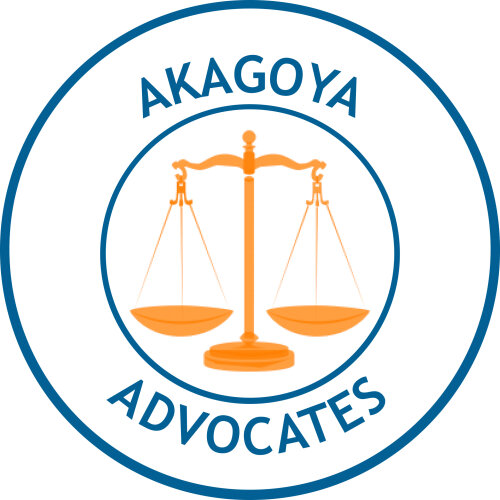Best Landlord & Tenant Lawyers in Uganda
Share your needs with us, get contacted by law firms.
Free. Takes 2 min.
Free Guide to Hiring a Real Estate Lawyer
Or refine your search by selecting a city:
List of the best lawyers in Uganda
About Landlord & Tenant Law in Uganda
Landlord and Tenant law in Uganda is governed by a combination of statutory and case law. The principal legislation is the Rent Restriction Act and the Condominium Property Act, along with several regulations that aim to create fair and stable legal environments for both landlords and tenants. This legal framework is intended to regulate various aspects of rental agreements, rights and responsibilities of both parties, as well as dispute resolution mechanisms.
Why You May Need a Lawyer
There are several situations where you may need legal help concerning landlord and tenant issues in Uganda. Here are some common scenarios:
- Lease Agreement Disputes: Disagreements on the terms and conditions outlined in the lease agreement, such as rent increases or security deposit returns.
- Evictions: Guidance through legal proceedings in cases of wrongful eviction or in adherence to lawful eviction processes.
- Property Damage Claims: Disputes over responsibilities for damages to rental property.
- Rent Arrears: Situations involving default on rent payments where landlords seek to recover unpaid rent.
- Regulation Compliance: Ensuring rental agreements comply with Uganda’s statutory requirements and local council regulations.
Local Laws Overview
Some key aspects of local laws pertaining to landlord and tenant relationships in Uganda include:
- Rent Restriction Act: This Act sets guidelines over rent amounts and conditions under which they can be reviewed.
- The Distress for Rent (Bailiffs) Act: Regulates the recovery of rent arrears through distress and the role of bailiffs.
- Security of Tenure: Offers protection against unjust evictions by providing minimum notice periods and stipulations that must be satisfied before eviction.
- Maintenance and Repairs: Identifies the responsibilities of both landlords and tenants regarding property maintenance and repair duties.
Frequently Asked Questions
What is a lease agreement?
A lease agreement is a legally binding contract between a landlord and tenant outlining the terms and conditions of the rental property.
How can rent be legally increased?
Rent can only be increased according to the terms specified in the lease agreement, which must adhere to any applicable laws or guidelines provided by the Rent Restriction Act. Typically, a minimum notice period is required.
What should I do if my landlord wants to evict me?
If faced with eviction, it is advisable to seek legal counsel to ensure the eviction process complies with legal requirements and your rights are protected.
Who is responsible for repairs on a rental property?
Generally, landlords are responsible for maintaining the property in a habitable condition, including major repairs, while tenants must address minor repairs and damages caused by negligence.
Can a landlord enter the property without notice?
A landlord must provide reasonable notice and obtain tenant consent before entering the rental property, unless it's an emergency situation.
What happens if a tenant cannot pay rent on time?
Tenants should communicate with their landlords as soon as possible to discuss potential payment arrangements. Failure to pay rent can lead to legal action and possible eviction.
How are security deposits handled?
Security deposits are collected to cover potential property damages and must be returned at the end of the lease if there's no damage beyond normal wear and tear.
Can tenants sublet the rental property?
Subletting is generally subject to the landlord's approval and should be clearly addressed in the lease agreement.
What should I do if I experience harassment from my landlord?
If you experience harassment from your landlord, it's important to document all incidents and seek legal assistance or report the matter to local authorities.
Is a verbal rental agreement legally binding?
Verbal agreements can be legally binding but are hard to enforce. Written agreements are recommended as they provide clear evidence of agreed terms.
Additional Resources
Several resources can assist individuals in understanding and navigating landlord and tenant laws in Uganda. These include:
- The Ministry of Lands, Housing and Urban Development: Offers resources and guidance on housing regulations and tenant rights.
- The Uganda Law Society: A professional body that can help you find a lawyer specializing in landlord and tenant law.
- Local Legal Aid Clinics: Provide free or low-cost legal assistance to individuals facing housing disputes.
Next Steps
If you believe you need legal assistance regarding a landlord or tenant issue, consider the following steps:
- Document all communication and incidents related to the issue, including dates, times, emails, and letters.
- Research and understand your rights as a tenant or landlord as outlined by Ugandan law and your lease agreement.
- Seek professional legal advice from a licensed lawyer or a legal aid organization specializing in property law.
- If necessary, consult the Uganda Law Society to locate a qualified attorney or contact agencies like the Ministry of Lands, Housing and Urban Development for guidance.
Lawzana helps you find the best lawyers and law firms in Uganda through a curated and pre-screened list of qualified legal professionals. Our platform offers rankings and detailed profiles of attorneys and law firms, allowing you to compare based on practice areas, including Landlord & Tenant, experience, and client feedback.
Each profile includes a description of the firm's areas of practice, client reviews, team members and partners, year of establishment, spoken languages, office locations, contact information, social media presence, and any published articles or resources. Most firms on our platform speak English and are experienced in both local and international legal matters.
Get a quote from top-rated law firms in Uganda — quickly, securely, and without unnecessary hassle.
Disclaimer:
The information provided on this page is for general informational purposes only and does not constitute legal advice. While we strive to ensure the accuracy and relevance of the content, legal information may change over time, and interpretations of the law can vary. You should always consult with a qualified legal professional for advice specific to your situation.
We disclaim all liability for actions taken or not taken based on the content of this page. If you believe any information is incorrect or outdated, please contact us, and we will review and update it where appropriate.
Browse landlord & tenant law firms by city in Uganda
Refine your search by selecting a city.
















